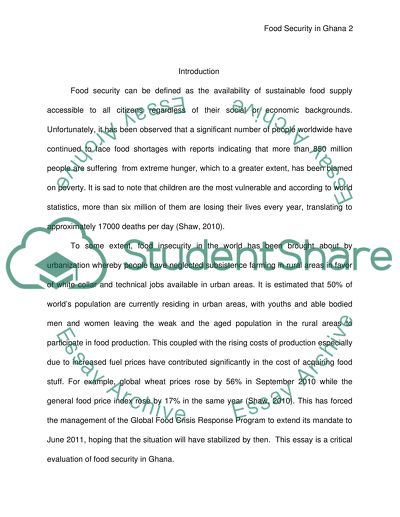Cite this document
(“Food security in Ghana Essay Example | Topics and Well Written Essays - 1750 words”, n.d.)
Retrieved from https://studentshare.org/environmental-studies/1410606-food-security-in-ghana
Retrieved from https://studentshare.org/environmental-studies/1410606-food-security-in-ghana
(Food Security in Ghana Essay Example | Topics and Well Written Essays - 1750 Words)
https://studentshare.org/environmental-studies/1410606-food-security-in-ghana.
https://studentshare.org/environmental-studies/1410606-food-security-in-ghana.
“Food Security in Ghana Essay Example | Topics and Well Written Essays - 1750 Words”, n.d. https://studentshare.org/environmental-studies/1410606-food-security-in-ghana.


